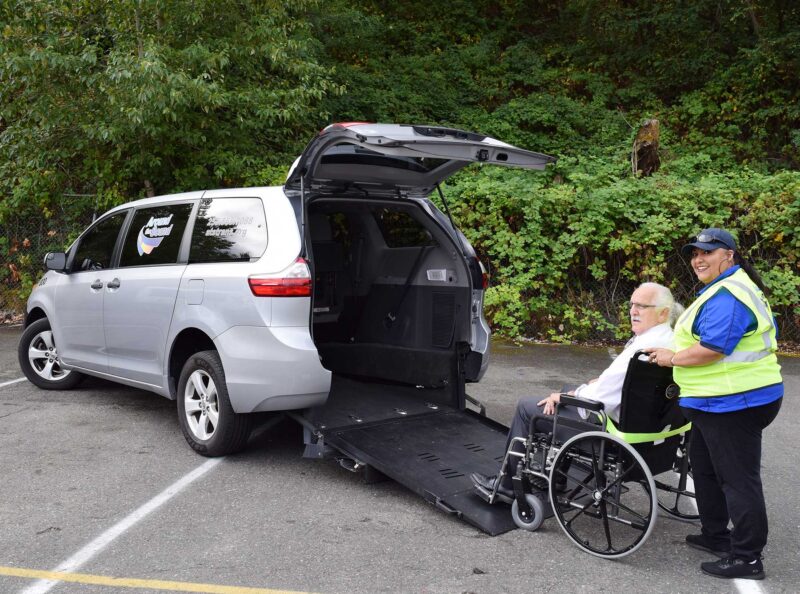Ensuring that seniors attend their doctor’s appointments requires careful planning and consideration. Whether dealing with mobility issues, health concerns, or simple logistics, transportation for seniors can be a challenge without the right information. Fortunately, with a few smart strategies, it’s possible to make every trip to the doctor as smooth as possible.
Key Points
- Plan ahead and confirm transportation in advance.
- Consider any mobility aids that will be needed.
- Allow extra time for the trip.
- Make safety the top priority.
- Non-emergency medical transportation services are valuable for seniors.
- Ensure any medical documents and prescriptions are prepared before the trip.
Plan Ahead to Minimize Stress

One of the most important steps in ensuring smooth transportation for seniors is to plan in advance. Confirm the appointment date and time, and ensure that transportation is organized early. By securing a ride ahead of time, whether through a family member, friend, or a transportation service, the risk of any last-minute stress decreases.
Consider Non-Emergency Medical Transportation
For those without access to a personal vehicle or when mobility issues become too challenging, non emergency medical transportation services can be invaluable. This is especially helpful when seniors need a safe, reliable way to get to their appointments without the pressure of driving themselves or depending on busy schedules of others. Companies like MediShuttle Express offer safe and reliable services, ensuring seniors can attend their medical appointments comfortably and on time.
Prepare for the Doctor’s Office Visit

Before heading out, it’s essential to gather any necessary items for the trip. This might include prescriptions, medical history, insurance cards, or mobility aids such as walkers or canes. Preparing these items in advance can help reduce any stress that might arise at the last minute.
For seniors with specific medical needs, it’s a good idea to review any instructions given by their doctor. Make sure to write down any questions or concerns that might need to be addressed at the appointment.
Allow Extra Time
Seniors often require more time than younger adults when traveling to their doctor’s office. This is particularly true when accounting for any physical limitations. Allow extra time not only for the trip but also for getting into and out of the vehicle and for walking to the appointment area once at the destination.
Factor in the possibility of traffic or unexpected delays as well. Giving yourself a time buffer ensures that any hiccups won’t result in missed appointments or rushed situations.
Prioritize Safety and Comfort
For seniors, safety and comfort during transportation are paramount. If driving a personal vehicle, it’s important to ensure that it’s well-maintained and safe. If you’re assisting with transportation, make sure that seniors are securely fastened in the car, and that any necessary adjustments are made for comfort, such as seat height or air conditioning.
In some cases, seniors may need help getting into or out of the car. Always approach this carefully, taking into account any balance or strength limitations.
Consider Mobility Aids

If the senior requires a wheelchair, walker, or other mobility assistance, confirm that it’s ready and accessible. Ensure that the transportation being used can accommodate the equipment.
For those using a private vehicle, confirm that the car has enough space for mobility aids. Many vehicles are not designed with this in mind, so it’s better to double-check and make necessary arrangements in advance. If using non-emergency medical transportation, verify that the service is equipped for such needs.
Keep Documents Organized
Before every doctor’s appointment, it’s vital to gather all necessary documents and medical records. Seniors should have their insurance cards, prescriptions, and a list of current medications on hand.
In addition, if the doctor has requested any previous test results or reports, make sure that they are available. This can help avoid unnecessary delays or confusion once you arrive at the doctor’s office.
Ensure Clear Communication with the Doctor

Once at the doctor’s office, make sure that all concerns are clearly communicated. For seniors who may have difficulty hearing or speaking, it can be helpful to accompany them into the office and assist in explaining symptoms or discussing treatment plans.
Taking notes during the appointment is a useful strategy. This ensures that all of the doctor’s recommendations and advice are clearly understood and followed afterward.
Conclusion
Transporting seniors to their doctor’s appointments can feel overwhelming at times, but with the right preparation, it becomes a manageable task. Plan ahead, ensure safety and comfort, and don’t hesitate to rely on professional transportation services when necessary. However, telehealth has emerged as an excellent alternative for seniors, allowing them to consult with healthcare providers remotely. This method reduces the need for travel, making it easier for seniors to receive medical care from the comfort of their homes. Each trip can go smoothly when every step is carefully thought out. Prioritizing the well-being of seniors ensures they receive the care they need, without unnecessary stress

